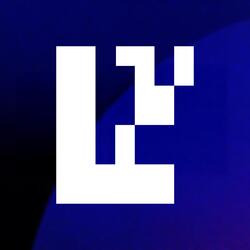Charges include running unregistered exchanges, broker-dealers, and clearing agencies, lying about trading oversight and controls on the Binance.us platform, and offering and selling securities without a licensed broker.
The Travails of Binance With The SEC
The Securities and Exchange Commission has charged Changpeng Zhao, the founder of Binance Holdings Ltd. (“Binance”), Binance.com, the largest crypto asset trading platform in the world, BAM Trading Services Inc. (“BAM Trading”), and Binance.US, Binance.com’s joint venture partner, with a number of securities laws violations.
The SEC asserts, among other things, that Zhao and Binance surreptitiously allowed high-value U.S. clients to continue trading on the Binance.com platform despite publicly claiming that U.S. customers were prohibited from doing so. Furthermore, the SEC asserts that Zhao and Binance surreptitiously oversaw the activities of the Binance.US platform while publicly claiming that Binance.US was developed as a distinct, independent trading platform for American investors.
The SEC further asserts that Zhao and Binance have authority over the assets of the platforms’ users, allowing them to combine or redirect those funds as they see fit, including to an organization Zhao owned and controlled named Sigma Chain. The SEC’s complaint further claims that Sigma Chain engaged in manipulative trading that artificially increased the trading volume on the platform while BAM Trading and BAM Management US Holdings, Inc. (“BAM Management”) deceived investors about nonexistent trading controls over the Binance.US platform. The complaint also claims that the defendants acted in a mixed manner while transferring billions of dollars in investor assets to a different company, Merit Peak Limited, which is also owned by Zhao.
A number of crucial federal securities laws’ registration-related clauses are also allegedly violated, according to the complaint:
- Running unlicensed national securities exchanges, broker-dealers, and clearing companies are Binance and BAM Trading;
- Binance and BAM Trading with the unlicensed offer and sale of Binance’s own digital assets, such as a fictitious exchange token called BNB, a fictitious stablecoin named Binance USD (BUSD), specific crypto-lending products, and a staking-as-a-service program; and
- Zhao serves as the control person for the operation of unregistered national securities exchanges, broker-dealers, and clearing firms by Binance and BAM Trading.
SEC Chair Gary Gensler stated that Zhao and Binance entities faced thirteen charges alleging deception, conflicts, nondisclosure, and legal evasion. Allegations claim Zhao and Binance misled investors about risk controls, trade volumes, platform operators, market manipulation, and asset custody details. They tried to bypass U.S. securities regulations by claiming fake controls but secretly ignored them to keep valuable U.S. clients. The general population should exercise caution while using or putting any of their hard-earned money on these illegal networks.
Gurbir S. Grewal, SEC Enforcement Director, alleged Binance and Zhao knowingly violated rules, risking customers to maximize their profits. Under Zhao’s leadership, Binance exposed investors to excessive risks by neglecting registration and merging exchange, broker, dealer, and clearing roles. The absence of transparency, related-party transactions, and fabricated safeguards against manipulative trading on Binance platforms amplify risks and conflicts significantly. Today’s lawsuit starts the process of holding them accountable, despite their years-long attempts to avoid doing so.
UNREGISTERED Exchange, Broker, and Clearing Agent
According to the SEC’s complaint, which was submitted to the U.S. District Court for the District of Columbia, Zhao has been in control of Binance since at least July 2017. During this time, Zhao has allegedly earnedt $11.6 billion, mostly from transaction fees from customers in the U.S. According to the SEC’s complaint;
(1) Binance should have registered as a broker-dealer, clearing agency, and exchange for Binance.com.
(2) Binance and BAM Trading should have registered as clearing agencies and exchanges for Binance.US.
(3) BAM Trading should have registered as a broker-dealer. The SEC further asserts that Zhao is accountable as a control person for the relevant registration breaches
CRYPTO ASSETS UNREGISTERED OFFER AND SALE
The SEC levied charges against Binance for sales of BNB, BUSD and loan products called “Simple Earn” and “BNB Vault.” Additionally, the SEC accused BAM Trading of offering and selling Binance.US’s staking-as-a-service product without first registering it. Additionally, according to the lawsuit, Binance surreptitiously controls the funds that US consumers have staked in BAM’s staking program.
ACCESS TO BINANCE.COM BY U.S. INVESTORS IS NOT RESTRICTED.
The SEC alleges Zhao and Binance created BAM Management and BAM Trading in 2019 to evade U.S. federal securities laws. The lawsuit claims Zhao secretly directed Binance to allow and conceal U.S. clients’ access while controlling the U.S. firm. The chief compliance officer of Binance once wrote in a communication to a colleague, “[w]e are operating as an unlicensed securities exchange in the USA, bro.”
LYING TO INVESTORS
The SEC’s lawsuit alleges that BAM Trading and BAM Management deceived equity investors and consumers of Binance.US about the presence and sufficiency of market surveillance and controls to identify and stop manipulative trading on Binance. trading volumes for digital assets on a US platform. The complaint also claims that Binance was primarily responsible for strategic and focused wash trading. The main unreported market-making trading company for the US platform, Sigma Chain, which is also controlled by Zhao, refutes claims made by BAM Trading regarding its market oversight and controls.
With the aid of Ainsley Kerr, John Marino, Donald Battle, and under the direction of Paul Kim, Kathleen Hitchins, Ann Rosenfield, and Colby Steele, the SEC conducted its investigation into the breaches relating to the Binance.US platform. Michael Baker, Donna K. Norman, and Martin Zerwitz investigated the infractions relating to the Binance.com platform under Deborah A. Tarasevich’s direction, with Sachin Verma and Alexander Lefferts’ help. Jorge G. Tenreiro and David Hirsch of the SEC’s Crypto Assets and Cyber Unit were in charge of both cases. Under the direction of David Nasse, Olivia Choe, and Mr. Tenreiro, the case is being handled by Matthew Scarlato, Jennifer Farer, and J. Emmett Murphy, with help from Hope Hall Augustini.
A Legal Fight Develops
A protective order and a request to compel are two of the legal proceedings at the center of the dispute between Binance US and the SEC. These are intricate legal tactics that call for thoughtful study and reactions on the part of both parties.
Important Future Deadlines
Two pivotal dates are approaching that will represent significant turning points in this judicial dispute:
1. September 5: Initially, this date was designated as Binance US’s due date for submitting a thorough response to the SEC’s legal proceedings. It’s an important time for Binance US to address the court with its arguments and defenses.
2. September 11: The new deadline is now scheduled for September 11, six days earlier than the original date. Binance US must respond to the motion to compel, the objection to the protective order motion, and many other legal demands on this day. The judge has made it quite apparent that Binance US must respond to each of these concerns in a distinct brief.
The importance of time
The September 11 deadline extension, which currently gives Binance US just four days, serves as a reminder of how quickly legal procedures move through the system. The Exchange must adhere to this deadline and offer thorough and convincing replies to the SEC’s legal proceedings.
Consequences That Might Occur
The result of this court dispute might have big effects on Binance and the larger cryptocurrency industry. If Binance US misses the last deadline, investors and the cryptocurrency community may become more fearful, unsure, and doubtful (FUD). It’s important to note that Binance has had significant directors depart the firm, which has made the issue more complicated.
It is impossible to overestimate the importance of this court dispute, which the cryptocurrency sector is keenly following. It highlights the increased regulatory scrutiny that cryptocurrency exchanges are subject to and the requirement for clear regulatory frameworks to control this quickly changing industry. The upcoming days will offer vital details on Binance US’s future and its position in the crypto market.
#Probabafx #Drwilliamodion #Binance #SEC

































































































































